 Yesterday was one of my worst parenting days. You ever have one of those?
Yesterday was one of my worst parenting days. You ever have one of those?
Coming off a night of tossing and turning I just shouldn’t have gotten out of bed. But with a 3 and a 4 year old, you really don’t have that option. So groggy with a bit of cotton-head I got up at 6:45 when my daughter called for me. Both of my kids always love to get up deliciously early.
My daughter got up on the wrong side of the bed. Everything from her dreams to her outfit were wrong. She didn’t even want to wear the underwear I had put out for her. Really? “It’s freakin’ underwear,” I could hear myself repeating in my head.
My son had just gotten up with my husband and was playing one of his new birthday games, Hungry Hungry Hippos. As my kids are allowed to open 2 gifts per day in the days following their special day to control the indulgence avalanche, he was ready to open his second gift.
It was a remote control car. Harmless enough—but a source of great argument when you have two children who are raised in a home where there is no such thing as a “girl toy” or a “boy toy.” They both wanted to play with it.
Two extremely “Type A” children, one car, one remote. You see where this is going? If they weren’t arguing with each other about whose turn it was, they were frustrated with the car for not doing what they wanted it to do. Boy throws remote on the ground. Remote breaks. Time out in the corner issued. Fixed remote. Girl gets impatient- tries to take remote. Boy swats girl. Remote gets thrown again. Breaks again. Another time out. More frustration. Pushing. Shoving. “It’s mine!” “I want it!” “You can’t have it!” Grabbing. Tackling. Remote gets thrown…Repeat.
I usually keep my emotions in check when it comes to parenting but spoiled, rotten behavior infuriates me. Entitlement gets under my skin. Lack of gratitude simply pisses me off. So I lost it. Getting two garbage bags, I walked into the den and took the car, the remote…and every other toy they had in there.
“No toys for the day!” I shouted out of sheer aggravation. “If you don’t treat your toys kindly and you can’t treat each other with respect, forget it. No toys. No TV. No Ipad. Nothing. Nothing at all that costs money,” I barked out while feeling the heat of my anger in my furled forehead. “You may have a piece of paper and crayons. You may read. You may go outside but go nowhere special. I refuse to have ungrateful children who don’t know the value of what they have. You clearly have too much that you think you can treat each other and your stuff like that. So there are no toys for the entire day! And we’ll see if you earn one or two back for tomorrow.” Then I just got quiet. I could hear my breath.
It doesn’t make me proud when I lose my temper. I think it’s kind of ugly even though it’s human. As a Child Development Specialist who speaks around the nation on parenting and working with kids I often expect myself to be text-book perfect—even though that’s completely unreasonable. But I said what I did, so no toys no matter how much they apologized or whined for them. Especially if they whined. That really drives me nuts.
My head swam for the rest of the day. I felt deflated. I felt like a failure. Why were my kids acting like this? Questioning why I couldn’t have just kept my cool and talked it out with the simultaneous compulsion to make kindness, gratitude and respect a big deal issue, I wondered if I did the right thing taking away everything while also contemplating if I should ever give the stuff back.
By the time one of my closest friends came by to drop by a CD of photos from my son’s birthday party, a very happy day indeed, I had moved from anger to sadness. We talked it out and the cloud was lifting. I read 2 articles that were circulating about having bad parenting days— and reminded myself that I’m not alone in grappling with all this stuff. My friend told me to take it as a sign that I was a good Mom, that these feelings were normal and it was time to let it go. I made a conscious decision to take a breath and shrug off the morning. It was the middle of the afternoon, after all.
By the time dinner time rolled around, I was fine. The nighttime ritual went well and everyone went to sleep on time. I was in bed by 10:30. I wanted to keep this day as short as possible.
Upon waking up when my son called for me at 6:45, I made a decision that today was going to be better. And it was. I even gave a few of the kids’ toys back because they were behaving quite well. Not perfect—but that’s never required.
So when they started arguing about the “Build a car” toy that came with its very own drill, screws and bolts, I was ready. We had a plan for positive turn-taking and sharing. And when my daughter took one of the screws my son had just reverse drilled and he swatted her again, I took a breath and remained calm. The car was removed temporarily and my son had a time out. He walked back in the room and I helped him say what he needed to say to be both assertive and respectful.
“When it’s my turn…” I prompted.
“When it’s my tuwn, pease don’t touch it, Tawwie,” he said assertively.
“And when it’s your turn…”
“And when it’s your tuwn, I won’t touch.”
“And I’m sorry…”
“And I’m sowwy for hitting you.”
After my daughter apologized for taking the screw in the first place and all was well again, they worked together quite nicely, taking turns and sharing. I told them how proud I was of them. Three screws drilled in, three screws drilled out. Switch. So the morning had started off on the right foot despite the minor sibling rivalry and the day before was becoming a distant memory.
I later took my son to his 3 year old doctor’s appointment and then over to meet his counselor at the little camp he’ll be going to over the summer. We met my husband for lunch at a little place in the next town.
While at the restaurant, we played “I spy” and drew in a coloring book. But my son started to get impatient and yelled. I immediately took him outside and explained; “Going to a restaurant is a privilege. We must be kind and thoughtful of other people. We can not yell—we must speak in a soft, inside voice. Do you understand?” We went back inside and all was well until a second yell. The kindness message was repeated with the added remark that if he couldn’t keep himself from yelling, we weren’t going to be able to stay. If he wanted to stay, he needed to follow the rules and speak in an inside voice. He agreed. No further incident happened.
Just before leaving, a lady of about 75 came to the table and leaned over to me.
“I’m really impressed by how you handled the situation with your son today. You are a wonderful parent. I can tell you that I’m proud of my 3 children and I have 8 grandchildren. Many parents don’t do what you do. You’re doing an excellent job.”
I nearly cried. Tears did in fact come to my eyes. “I can’t tell you how much I needed to hear that today. I truly appreciate your kind words.”
“We all need encouragement” she continued. And you can be proud of the job you are doing.”
Wow. So let me leave you with what I learned from this whole situation—which really is the most important part of all this, isn’t it?
- We are all going to have bad parenting days. But there is always tomorrow.
- Clear the “cache” at night. Don’t take the rain from yesterday into the possibility of a sunny day today.
- Make a conscious decision to have a good day, even when you are tired and don’t think you have it in you.
- Talk to a good friend. Good friends totally rock in these circumstances— they can help you put things into perspective and move forward.
- Remember it’s a bad parenting day. You are not a bad parent.
- Don’t expect perfection. You are human, after all.
- Go to bed early. Sleep helps.
- When your kids do something wrong, take a breath. Then speak.
- Praise your children when they get it right. They need to hear that.
- Tell parents when they are doing a great job. They probably need to hear that too. I know I did.
So let me say it now. You, too, are doing a great job. You may not always get it right. You may lose your sauce some days and think you are the worst parent ever. You’re not. And even if things aren’t going well right now, remember, there is always another moment…another day…another chance to make it better. What I’m saying is; even a great parent can have a bad parenting day. Onward, fine parents!

 I was on the Today Show this morning talking about teens and sexting. A new study suggests that boys are sexting more than ever– aiming to get the attention of girls in profoundly inappropriate ways. Here are some questions parents have asked me– and some answers that I hope will be helpful to you as you navigate today’s high tech culture with your children.
I was on the Today Show this morning talking about teens and sexting. A new study suggests that boys are sexting more than ever– aiming to get the attention of girls in profoundly inappropriate ways. Here are some questions parents have asked me– and some answers that I hope will be helpful to you as you navigate today’s high tech culture with your children.



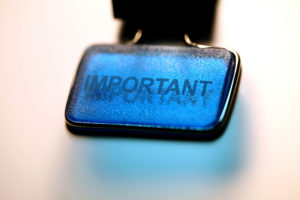 We don’t mean to do it. But so many of us do it anyway.
We don’t mean to do it. But so many of us do it anyway. A new alliance I am part of called “
A new alliance I am part of called “



 Yesterday was one of my worst parenting days. You ever have one of those?
Yesterday was one of my worst parenting days. You ever have one of those?

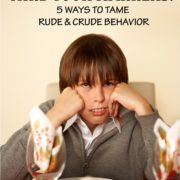
 Dr. Robyn Silverman answers one parent’s question about how to instill manners in her children– especially when they haven’t been overtly enforced in the past.
Dr. Robyn Silverman answers one parent’s question about how to instill manners in her children– especially when they haven’t been overtly enforced in the past.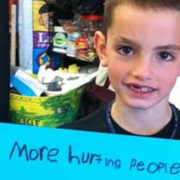
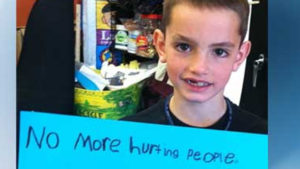 As we now all know, yesterday’s tragic bombing at the Boston Marathon resulted in at least 176 people injured.
As we now all know, yesterday’s tragic bombing at the Boston Marathon resulted in at least 176 people injured.  good people
good people that they can contribute to their family, their community, their country and beyond. Encourage them to do that. By doing so, you will teach them that there is a lot more good in this world than there is evil. And, yes, they are a big part of that good.
that they can contribute to their family, their community, their country and beyond. Encourage them to do that. By doing so, you will teach them that there is a lot more good in this world than there is evil. And, yes, they are a big part of that good.
 In the above video, I talk in depth about 6 tips to helping children keep a positive attitude including:
In the above video, I talk in depth about 6 tips to helping children keep a positive attitude including: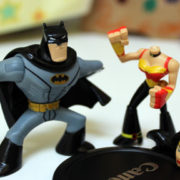
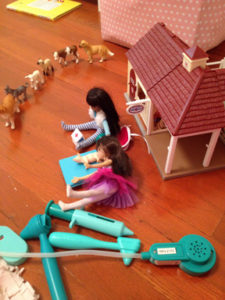 As a parent, I often wonder about how the toys and role models in my children’s lives translate to behavior. I tend to be the kind of mother who encourages a wide range of toys, games and books. I am less about banning (unless it is truly counter to our family’s core character-based values) and more about providing a continuum of options so that my children gain experience, choice and understanding.
As a parent, I often wonder about how the toys and role models in my children’s lives translate to behavior. I tend to be the kind of mother who encourages a wide range of toys, games and books. I am less about banning (unless it is truly counter to our family’s core character-based values) and more about providing a continuum of options so that my children gain experience, choice and understanding. My daughter has been known to “acquire” my son’s Batman figure as well as his Spiderman book. She asked for a Superhero book of her own for her most recent birthday that features Superman, Batman and Wonder Woman all together. She’s even going as Wonder Woman to a Superhero/Princess birthday party this weekend. When I asked Tallie what she likes about Wonder Woman, she told me; “She’s cool! She fights cwime!” Justice. Power. Self reliance. Good for every gender!
My daughter has been known to “acquire” my son’s Batman figure as well as his Spiderman book. She asked for a Superhero book of her own for her most recent birthday that features Superman, Batman and Wonder Woman all together. She’s even going as Wonder Woman to a Superhero/Princess birthday party this weekend. When I asked Tallie what she likes about Wonder Woman, she told me; “She’s cool! She fights cwime!” Justice. Power. Self reliance. Good for every gender!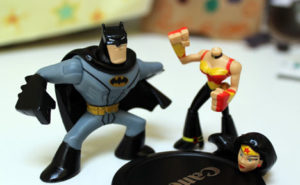 This morning, Wonder Woman single-handedly stopped an oncoming train from crashing into the building of blocks that we all built together– and Batman rescued the people off the train. Unfortunately, there was a casualty. The Wonder Woman action figure was decapitated. Who makes a Superhero with such a flimsy neck? She’s an Amazon Princess Warrior for cripes sake– not a runway model! Ah, well, off to the store to invest in a Wonder Woman toy that can hold her ground…and keep up with my kids!
This morning, Wonder Woman single-handedly stopped an oncoming train from crashing into the building of blocks that we all built together– and Batman rescued the people off the train. Unfortunately, there was a casualty. The Wonder Woman action figure was decapitated. Who makes a Superhero with such a flimsy neck? She’s an Amazon Princess Warrior for cripes sake– not a runway model! Ah, well, off to the store to invest in a Wonder Woman toy that can hold her ground…and keep up with my kids! “I want to wear the pink socks.”
“I want to wear the pink socks.”